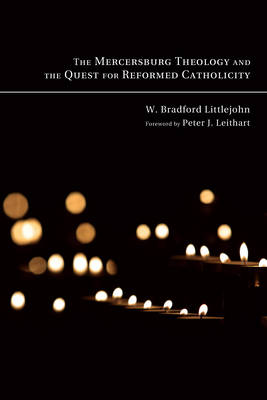
- Retrait gratuit dans votre magasin Club
- 7.000.000 titres dans notre catalogue
- Payer en toute sécurité
- Toujours un magasin près de chez vous
- Retrait gratuit dans votre magasin Club
- 7.000.0000 titres dans notre catalogue
- Payer en toute sécurité
- Toujours un magasin près de chez vous
The Mercersburg Theology and the Quest for Reformed Catholicity
W Bradford Littlejohn
Livre broché | Anglais
39,45 €
+ 78 points
Format
Description
In the mid nineteenth century, Reformed churchmen John Nevin and Philip Schaff launched a fierce attack on the reigning subjectivist and rationalist Protestantism of their day, giving birth to what is known as the "Mercersburg Theology." Their attempt to recover a high doctrine of the sacraments and the visible Church, among other things, led them into bitter controversy with Charles Hodge of Princeton Seminary, as well as several other prominent contemporaries. This book examines the contours of the disagreement between Mercersburg and Hodge, focusing on four loci in particular-Christology, ecclesiology, sacramentology, and church history. W. Bradford Littlejohn argues that, despite certain weaknesses in their theological method, the Mercersburg men offered a more robust and historically grounded paradigm for the Reformed faith than did Hodge. In the second part of the book, Littlejohn explores the value of the Mercersburg Theology as a bridgehead for ecumenical dialogue, uncovering parallels between Nevin's thought and prominent themes in Anglican, Catholic, and Orthodox theology, as well as recent debates within Reformed theology. This thorough study of one of the most creative movements in American theology offers an alluring vision of the quest for Reformed catholicity that is more relevant today than ever.
Spécifications
Parties prenantes
- Auteur(s) :
- Editeur:
Contenu
- Nombre de pages :
- 214
- Langue:
- Anglais
Caractéristiques
- EAN:
- 9781606082416
- Date de parution :
- 01-07-09
- Format:
- Livre broché
- Format numérique:
- Trade paperback (VS)
- Dimensions :
- 150 mm x 224 mm
- Poids :
- 299 g

Les avis
Nous publions uniquement les avis qui respectent les conditions requises. Consultez nos conditions pour les avis.






